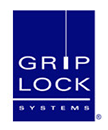Industry News
Next Generation Of Utility Energy Efficiency Programs From Encentiv Energy
March 04, 2019
New York launches a major initiative targeting over 4MM MWh of energy savings by 2025.
For more than 15 years, there have been state-mandated energy efficiency programs run by local utilities or through the state public utility commissions. At Encentiv Energy, we track over 1,000 programs across the U.S. and Canada. Each program is constantly challenged to document enough benefits to justify the use of ratepayer funds. As these programs mature, will they be able to generate enough savings to overcome the costs? In December of 2018, New York announced a Comprehensive Energy Efficiency Initiative through its Order Adopting Accelerated Energy Efficiency Targets through 2025. The state committed an additional $100M through 2020 for energy efficiency programs and $1.25B for 2021 to 2025. Clearly, New York’s Public Service Commission (PSC) believes that there are still plenty of cost-effective measures to be had and have boldly raised the bar for its six regulated utilities. The PSC challenged the utilities to move beyond the status quo through new ideas that:
- leverage the vast amount of utility data available
- establish a mechanism to evaluate and implement new technology
- encourage innovative new program models
Each utility is required to file its initial plan by the end of March and start implementing their expanded programs by the summer. The Order highlighted that New York City has had a commercial building benchmarking and disclosure program in place since 2009. The PSC will now require that all six utilities implement similar benchmarking programs so customers can make educated decisions about energy efficiency improvements to their buildings. Another directive from the PSC was the active involvement of “third-party market participants.” The stated purpose was to reduce the costs associated with achieving goals by encouraging innovation and investment from companies that build and sell energy efficiency technology solutions. The new model will allow for rapid deployment of technology that is proven to be effective.
What does all this mean for you? If you manufacture, sell, distribute, or install energy efficiency products like lighting, lighting controls, heat pumps, etc. then you should be probably be ramping up your marketing and sales efforts in New York. One stark reality that utilities face is that they will need to engage a significantly larger number of customers to hit these goals, especially in the commercial and industrial sectors. Traditional prescriptive, custom, and midstream program models that rely on energy efficiency professionals to generate projects are simply too manual and too expensive to scale to the volumes necessary to hit these new goals.
This presents a good opportunity for utilities to leverage digital engagement technology to reach more customers at a lower cost. However, a study published last year by J.D. Power ranked utilities last among other consumer-facing industries in providing a strong digital experience for its customers. When it comes to things like retail, shipping, travel telecom/internet services, healthcare, etc., the standard is that we can communicate, shop, track and publish feedback on digital platforms. Many utilities are still stuck in the traditional paper bill and call center models. Navigant recently published a white paper, titled “The Changing Value of Customer Experience in the Energy Cloud.” In this white paper, Navigant challenges utilities to “transform how they interact with their customers” especially when it comes to selling them on “evolving programs, products, and services.” This means that utilities need to move beyond providing websites that just look good by adding functionality that customers will want to access (via web or mobile) on a regular basis, because it gives them ongoing relevant information that impacts their lives or businesses. Imagine if a commercial business owner got a text message from their utility that their usage was high compared to similarly sized businesses. From that message, the customer could click through to an interactive tool that, based on their building type, would allow them to select from a list of energy efficiency measures that would reduce their usage. With a little more detail, the tool could generate an energy savings analysis that lets the customer choose which measures they would like to evaluate. Based on their approval, this would trigger an email that would be sent to one or more approved contractors who could come out to their site to give them a quote. Quotes would be delivered via the same platform so the customer could easily compare them and be assured that any available rebates are included since the process is being managed by the utility. These new targets in New York don’t seem so daunting once you think about how data, technology, and process automation could help streamline and scale the whole model. Other states will no doubt be watching New York closely to see how they cost-effectively implement this Order. Stay tuned as the drama unfolds...
Stay in the loop and get more awesome content like this https://blog.encentivenergy.com/news!
BY Steve Moritz
President & CEO, Encentiv Energy









































